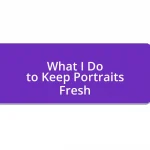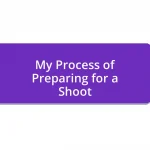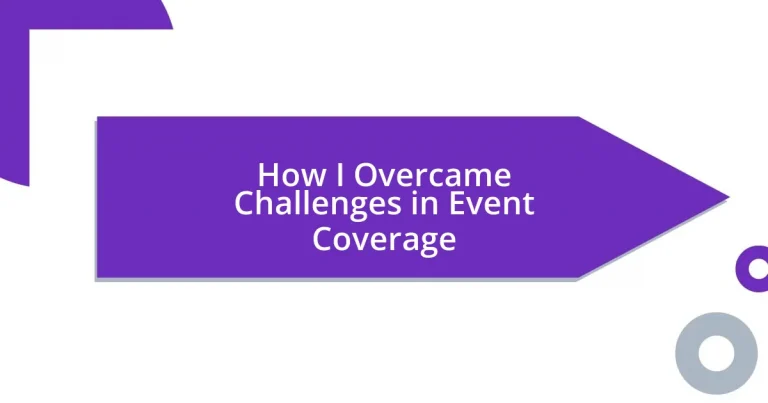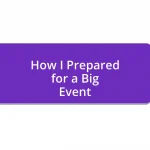Key takeaways:
- Utilizing lightweight gear and digital tools enhances agility and content gathering during events.
- Building a reliable support network provides emotional and technical assistance, improving overall event coverage.
- Establishing clear communication channels, like group chats, streamlines updates and task management during events.
- Reflecting on experiences and gathering feedback fosters continuous improvement, enhancing skills and storytelling depth.
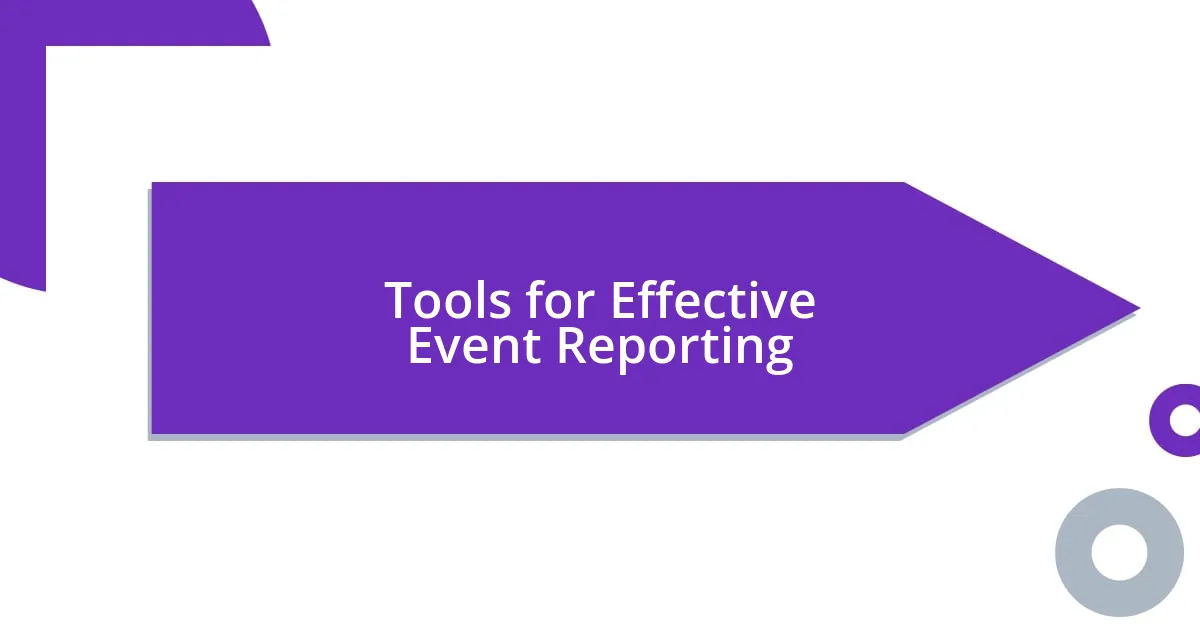
Tools for Effective Event Reporting
When it comes to effective event reporting, having the right tools at your disposal can truly make a difference. I remember lugging my bulky camera and heavy notebook around an outdoor festival, feeling exhausted before even capturing my first shot. Over time, I learned that lightweight gear, like a compact camera or a digital note-taking app, can be game-changers, allowing me to stay agile while still gathering rich content. Have you ever missed an opportunity because you were weighed down by your equipment?
Additionally, organizing information becomes simpler with apps specifically designed for journalists. I once used a simple database to keep track of attendees and schedule changes during a conference. The ease of access saved me from scrambling in the chaos, allowing me to focus on storytelling instead of searching for details. Think about it: How much easier would your coverage be if you had everything centralized?
Lastly, I can’t stress enough the importance of having a reliable internet connection. I once covered an event where I underestimated the venue’s connectivity and missed my scheduled live updates. It was a frustrating experience that taught me to always scout the venue beforehand for Wi-Fi or at least have a backup mobile hotspot. Isn’t it wild how a little planning can drastically change the way we connect with our audience?
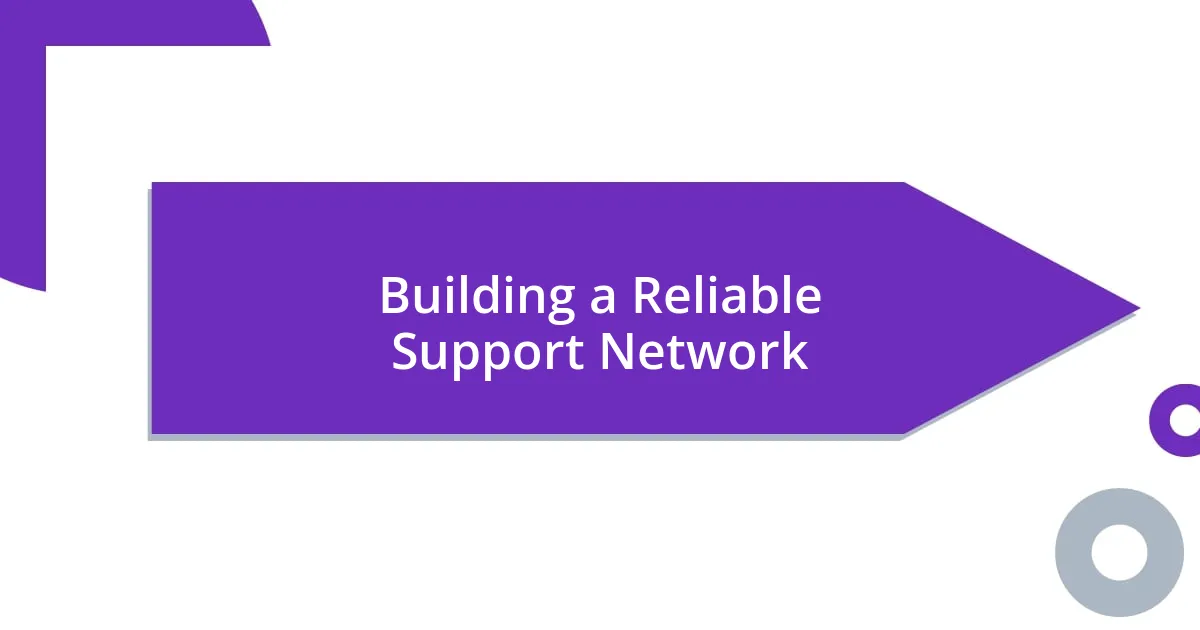
Building a Reliable Support Network
Building a reliable support network is crucial when navigating the unpredictable world of event coverage. In my earlier days, I often felt like I was a lone wolf, trudging through events without a solid team. One day, while covering a large expo, I found myself overwhelmed by the sheer volume of activities. It was a colleague who stepped in to help me capture key moments and share insights. That experience made me realize how invaluable it is to surround yourself with talented, dependable individuals who can complement your strengths and fill in the gaps.
The emotional weight of not having support can be daunting. I vividly remember a time I was tasked with covering a high-profile sports event with minimal assistance. There I was, racing against the clock to meet deadlines while battling tech malfunctions. It felt like I was drowning until I reached out to a fellow journalist who offered not only technical advice but also helped brainstorm angles for my coverage. That moment underscored the significance of building relationships with others in the field who can provide moral and technical support when challenges arise.
In my journey, I’ve learned that networking isn’t just about professional gain; it’s also about creating a sense of community. At a recent festival, I reunited with contacts I had met previously. We exchanged stories, tips, and even collaborated on content, making the entire experience richer and more enjoyable. Building a robust support network fosters a collaborative spirit, reminding us that we’re all in this together.
| Benefits | Examples |
|---|---|
| Emotional Support | A fellow journalist helped me overcome a stressful live coverage situation. |
| Technical Assistance | A colleague guided me through equipment malfunctions during a major event. |
| Resource Sharing | Networking at a festival led to content collaboration and richer storytelling. |
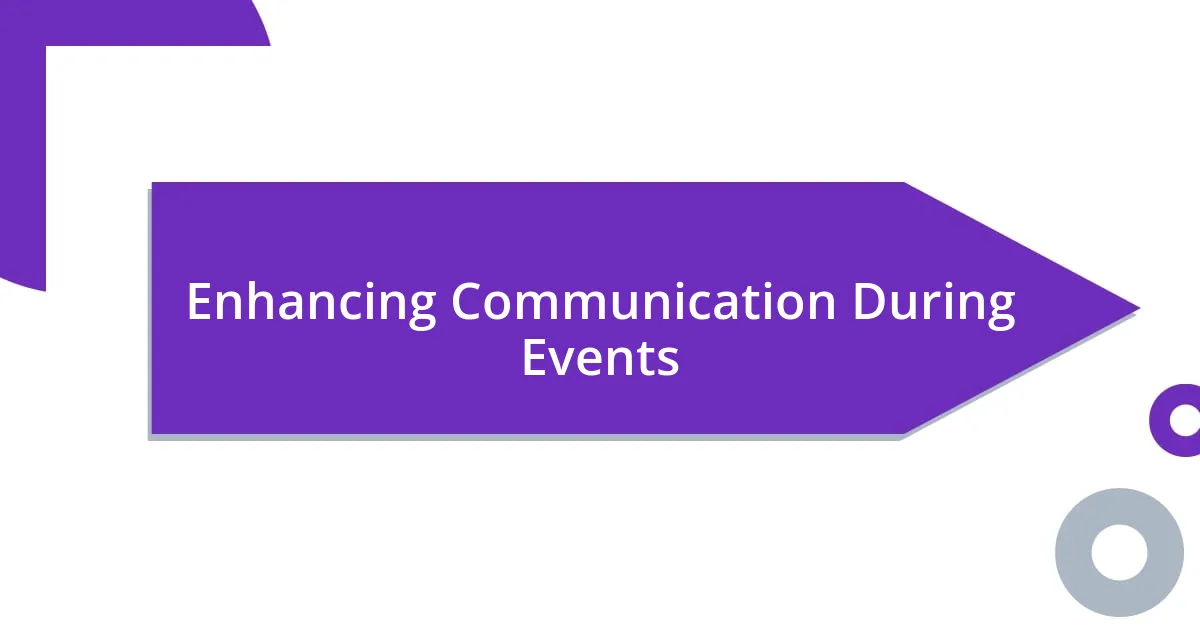
Enhancing Communication During Events
Enhancing communication during events is something I’ve come to value immensely over the years. In my experience, clear communication channels can turn chaos into organized success. I recall working at a large festival where miscommunication nearly led to missed interviews. By simply establishing a group chat with the team, we streamlined our updates. It was a small change, but it made managing our tasks so much easier and helped everyone stay in the loop.
To enhance communication further, I’ve discovered a few key strategies that work wonders:
- Use Real-Time Messaging: Tools like Slack or WhatsApp allow for instant updates and quick decision-making. They’re great for asking questions and sharing immediate observations.
- Create a Contact List: Having all key contacts, like fellow journalists and event coordinators, easily accessible ensures you’re never left scrambling for a phone number.
- Implement Regular Check-Ins: Setting brief intervals to regroup, even if only for a minute or two, can help everyone stay focused and connected amidst the bustle of an event.
By fostering open lines of communication, I’ve found that not only does my team function more cohesively, but it also greatly reduces stress levels. It’s fascinating how a simple change in approach can make all the difference in delivering quality coverage.
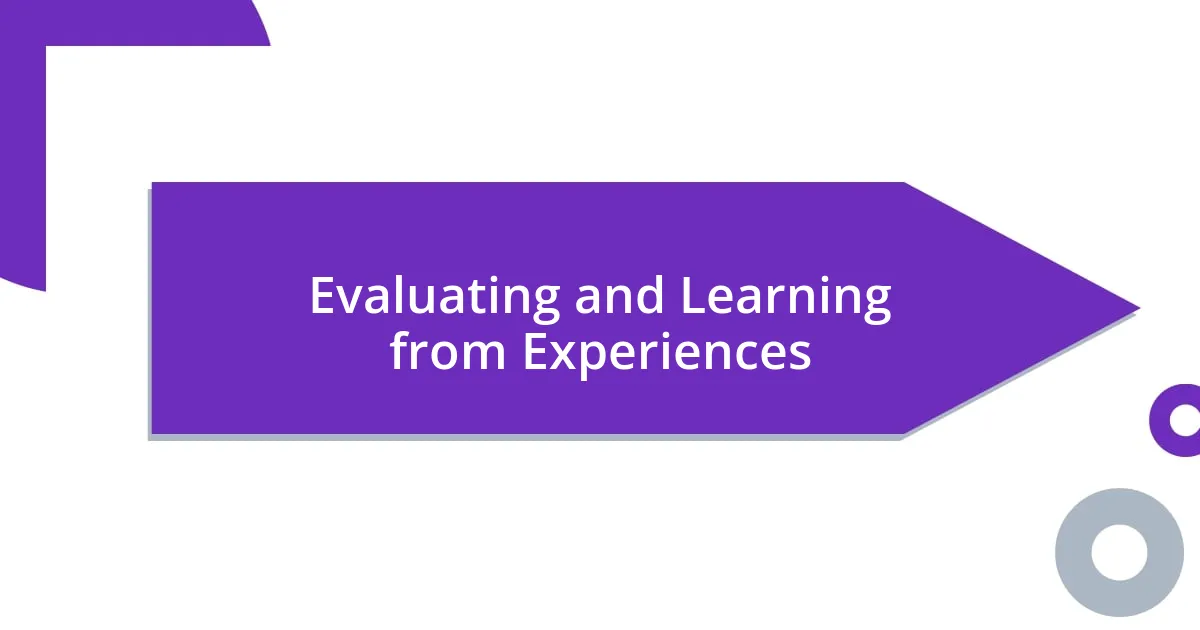
Evaluating and Learning from Experiences
Evaluating experiences after an event is a practice I’ve grown to cherish. I often find myself reflecting on the extravaganza of emotions—did I feel prepared? Were my expectations met? Once, after covering a local art fair, I took the time to sift through my notes and assess what went well and what needed tweaking. This exercise didn’t just improve my skills; it opened my eyes to patterns I hadn’t noticed before. By looking back, I gained insights that directly shaped my approach to future events.
When things go awry, as they often do, I ask myself what I can learn from the chaos. I vividly remember an instance at a concert where a sudden storm disrupted everything. Instead of panicking, I focused on adapting—quickly moving to cover the impact on the performers and audience. Reflecting on this later, I realized that the ability to pivot and capture unexpected moments was a new strength of mine. Isn’t it fascinating how challenges can transform our perspectives?
Documentation plays a vital role in my self-evaluation process. After each event, I jot down notes, not just about logistics but also the emotional highs and lows. This practice helps me articulate lessons learned, such as managing stress effectively or enhancing my interaction with attendees. I often ask myself: what did this experience teach me about resilience? The richer my records, the more equipped I feel for future challenges, paving the way for continuous growth.
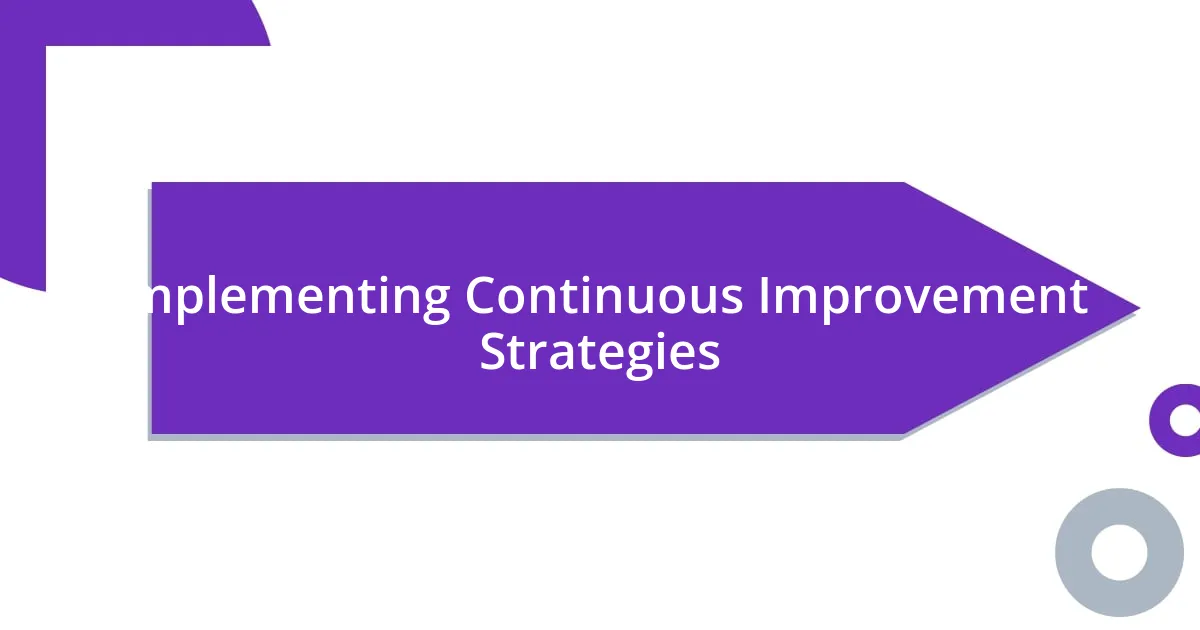
Implementing Continuous Improvement Strategies
Implementing continuous improvement strategies has been a game changer in my event coverage journey. I remember a chaotic day at a charity gala where things didn’t go as planned. Instead of letting that overwhelm me, I took notes on what went wrong and how I could adapt. By setting short-term goals for myself, like improving my time management with setup, I was able to tackle specific areas of weakness. Hasn’t it always been said that identifying the smaller hurdles can simplify the larger journey?
One technique that has worked wonders for me is maintaining a feedback loop. After every event, I gather input from my team about what went well and what we could refine. It’s been enlightening to hear different perspectives; once, a colleague suggested we allocate specific roles during the event rather than improvising. This simple shift allowed us to function like a well-oiled machine. How often do we overlook the potential of collaborative insights in our quest for improvement?
Finally, I set aside time each week to review my notes and reflect on my progress. It’s more than just a checklist for me—I see it as an opportunity to connect with my personal growth. Recently, I reflected on a particularly stressful event where I almost didn’t capture key moments. That taught me the importance of pre-event practice. By implementing these continuous improvement strategies, I’ve noticed a newfound confidence that not only enhances my efficiency but depth in my storytelling. How incredible is it to realize that every challenge can fuel our evolution?





